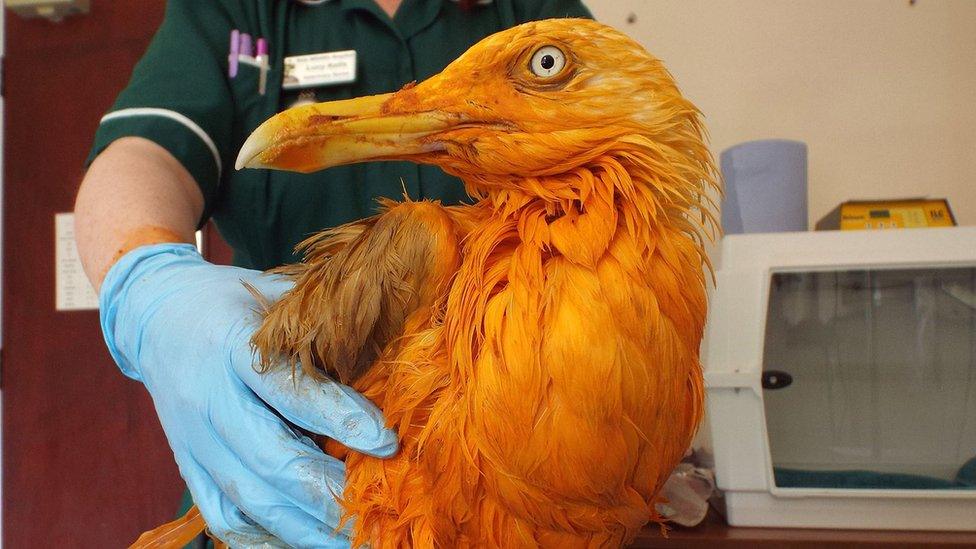Swansea: Anti-seagull nets for Grade I-listed building
- Published
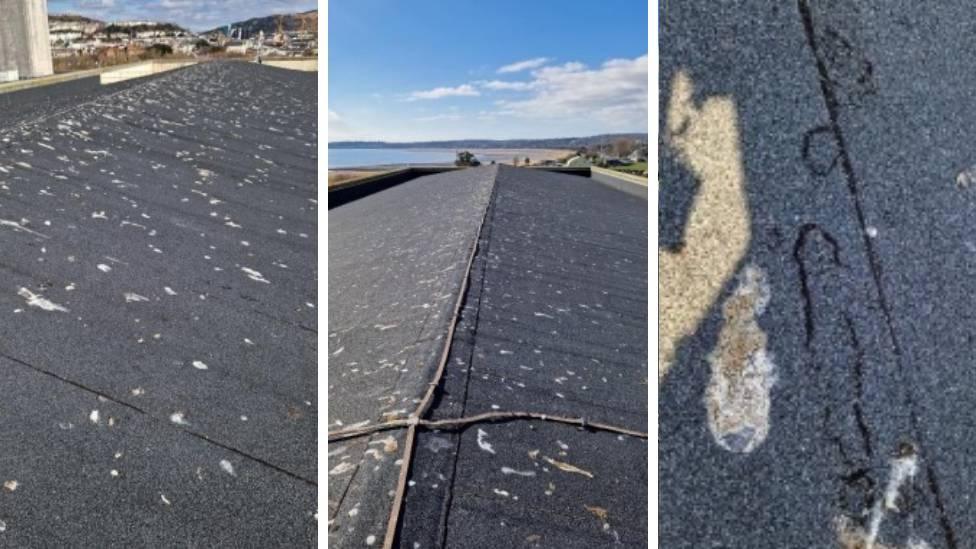
The council says the seagulls are making a mess of and causing damage to the new roof of the historic Brangwyn Hall
Anti-seagull netting is planned to stop birds eating their dinner on the roof of a historic listed building.
Swansea Council has applied for listed building consent to place netting across Brangwyn Hall in the city.
The application said the gulls were "taking shells and bones onto the roof" to smash them up and eat them.
All species of gull are protected under the Wildlife and Countryside Act, so it is illegal to intentionally injure or kill them, or destroy their nests.
It said the outer layer of the new roof, which was completed last August, was becoming dented and the debris and bones could block drain pipes, the Local Democracy Reporting Service said.
"Over a prolonged period, they could potentially cause damage to the roof," it said.
"The gulls are sitting on the roof throughout the entire year and not only during nesting season."
Brangwyn Hall is part of the Guildhall - one of a small number of Grade I listed buildings in Swansea.
The Guildhall was designed by Sir Percy Thomas and completed in 1934. It houses council staff, with Brangwyn Hall hosting conferences, concerts, festivals and graduation ceremonies.
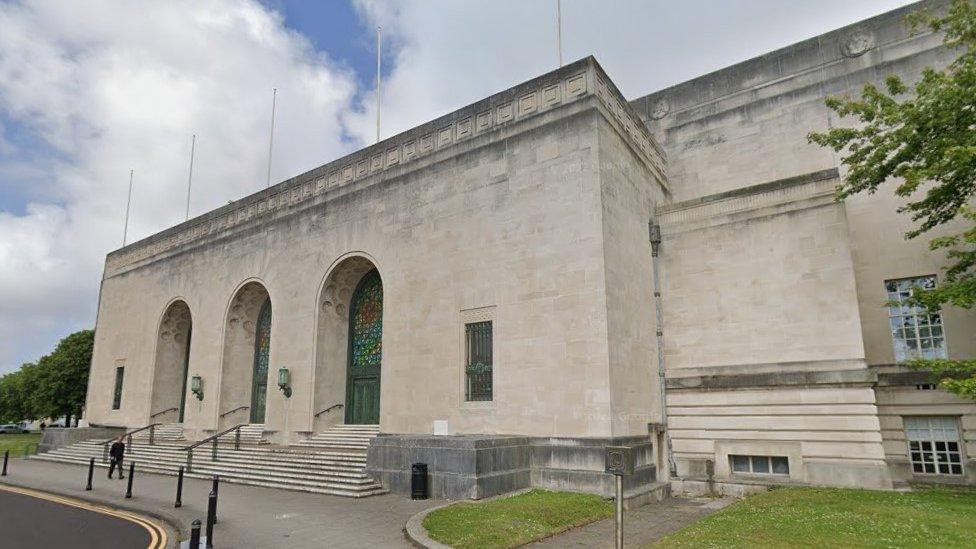
Brangwyn Hall, part of The Guildhall, is a Grade I listed building
The hall is home to 16 large panels, which are paintings by Frank Brangwyn to commemorate the World War One.
But seagull-proofing techniques have previously been used elsewhere in Swansea.
Four years ago, a couple from the Mayals area of the city urged the council to take more action as residents and their pets were allegedly being attacked by the hungry birds.
Phil and Caroline Slater said they were regularly awoken at 04:00 by young seagulls calling to be fed.
Last December, the company which manages a block of flats - formerly the Osborne Hotel - at Rotherslade Bay, Swansea said gulls and other wildlife were likely to blame for puncture marks to the roof.

IOLO'S BORDERLANDS: Searching for extraordinary wildlife along the Welsh border
WALES' HOME OF THE YEAR: Take a peek inside the dream homes on your doorstep

Related topics
- Published31 January 2012
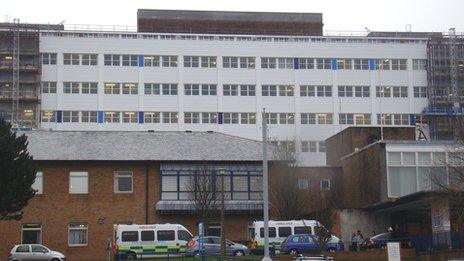
- Published16 July 2021
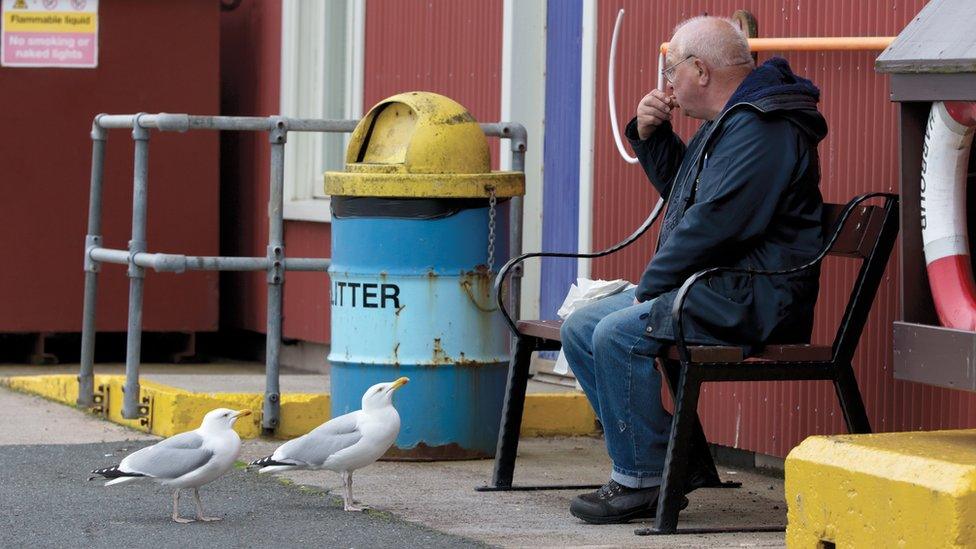
- Published9 June 2016
